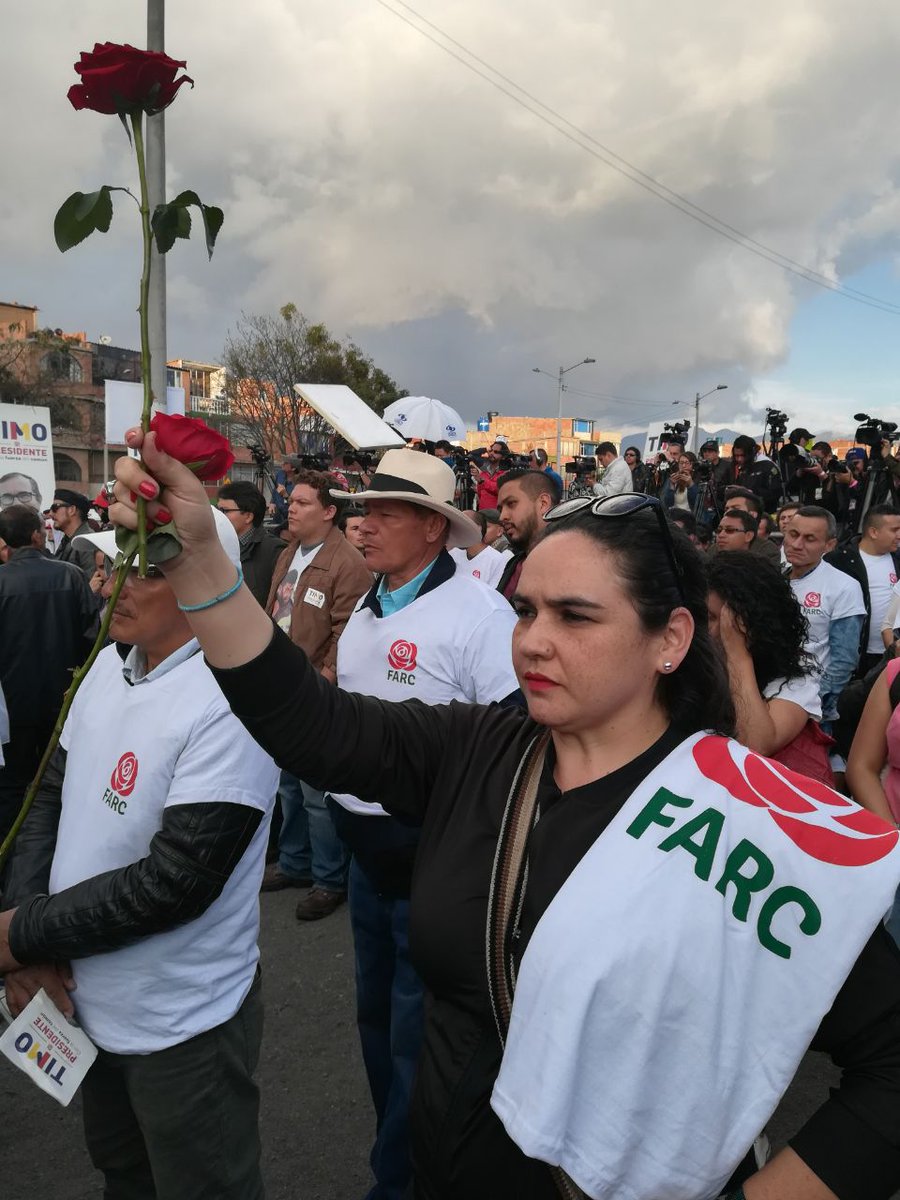
@FARC-EPueblo
On Saturday, FARC leader Rodrigo Londoño, more commonly known as “Timochenko”, launched his official presidential campaign with a promise to fight poverty and corruption.
Londoño chose Simón Bolívar, one of Bogota’s poorest neighbourhoods, to kick off his presidential campaign as leader of the newly formed political party, the Alternative Revolutionary Force of the People (FARC). As he took to the stage he was received by a celebratory crowd of supporters, many waving posters and banners, and sporting white shirts with the party’s symbolic red rose logo.
Londoño will be counting on communities such as those in Simón Bolívar to make up the majority of his votes as many of his proposals target the under-presented working class people.
“I promise to lead a government that will create the conditions for the birth of a new Colombia,” said Londoño. “A government that will finally represent the interests of the poor.”
The campaign marks another historic step for the former rebel group, after thousands of members handed in their weapons following a congressional resolution which constituted the peace agreement with the Colombian government in September 2016, ending a 52-year civil war.
The FARC was alloted 10 congressional seats by the Colombian Senate in April last year, legitimising the former guerrilla group as a civilian political party. The group changed its name from Revolutionary Armed Forces of Colombia, to the Alternative Revolutionary Force of the People, keeping its Spanish FARC acronym.
Londoño, once one of Colombia’s most wanted-men, and former guerrilla leader of the FARC, has lead the group through 4 years of peace negotiations and will now be the first presidential candidate for the revolutionary group since its founding in the 1960s.
However, despite the change in name and absence of their combat green uniform, many are not as quick to forget the group’s violent past. Infamous for kidnappings, bombings and killings of at least 250,000 civilians and police officers, and the displacement of 7 million people, the majority of Colombians, as suggested by a public referendum, remain reluctant to make peace with the FARC, let alone allow them to run for congressional seats.
National and international controversy surrounds Londoño’s presidential candidacy in particular, due to the critical role he played in the massacres and kidnappings of Colombians. The US State Department have accused Londoño of controlling the FARC’s cocaine operations, and has offered a $5 million reward for anyone who helps secure his capture.
As part of the 2016 peace agreement, FARC members will face a special peace tribunal but are unlikely to serve any jail time as long as they confess to their crimes. However, Londoño and other FARC leaders have yet to address how they would complete their terms in office, were they to face eventual charges from transitional justice tribunals.
While the FARC’s campaign kickoff is an emblematic sign of Colombia’s positive efforts towards peace, the country is still host to violent outbreaks. The same day Londoño announced his official presidential bid, seven policemen in northern Colombia were killed in two terrorist attacks. Although the bombs have since been attributed to the National Liberation Army (ELN), it is a sign that the road to peace continues to have its potholes.





